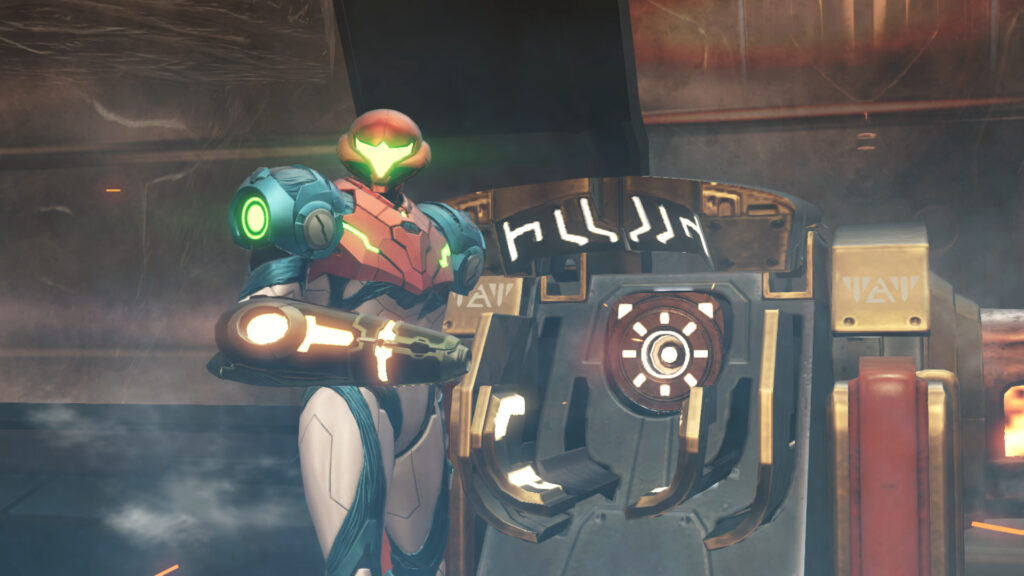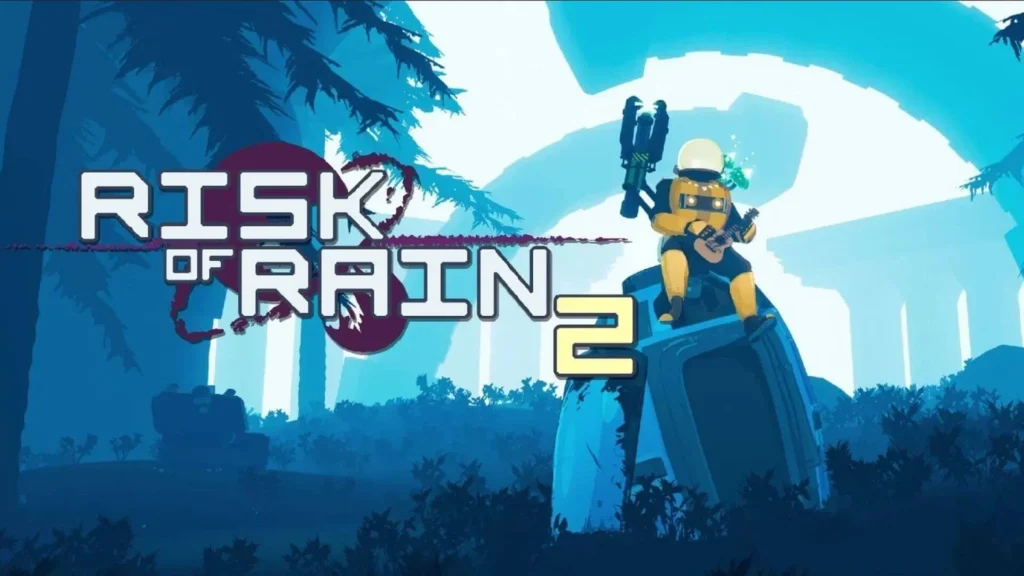Video games cost money to make, and for some developers and their games a publisher is a good way to get that money and get a partner that helps make and market their game. Publishers can be huge for what would otherwise only be a moderately successful game and making a true financial success, as well as alleviating some of the burden on a developer. However, there are IP pitfalls to avoid in these situations.
A developer’s game is precious to them, they’ve worked hard on it. With that in mind, we’re going to look at three Intellectual Property (IP) pitfalls that can be found in a publishing agreement that can lead to unfortunate consequences for developers, their games, and their studio.
This isn’t meant to be a comprehensive look at everything that can go wrong – every situation and game is unique. Instead, this is meant to be a quick look at a few things developers should be thinking about when working with a publisher. As always, consult with a lawyer for the specific of your situation.
Developers and Publishers, What’s the Difference?
To start off, let’s have a look at how games are made from a business perspective and what the relationship is between developers and publishers. While I’ve used the terms “developer” and “publisher” interchangeably, they’re often different companies or studios in the indie game development space, though sometimes they can be the same company for a game. Let’s look at each.
A developer is the person or studio that makes a game. In book publishing terms, this is the author. They have the vision and are the entity putting in the work to make the game. It’s pretty straightforward.
A publisher is a company that handles distribution, funding, and marketing, among other things like porting and localization. What they actually do for a game will vary depending on the contract between the two parties as well as the needs of the game and studio. Often they provide the money to fund the developer working on the game, or they can provide other services.
Usually, developers and publishers work together under the terms of a contract called a publishing agreement. The specifics will vary, but usually a publisher funds the development and aids in the marketing of the game in exchange for a portion of the revenue that the game makes. They’re essentially an investor in some ways but are directly involved in the process of making a game.
How are Publishing Agreements Negotiated?
The relationship between a publisher and a developer isn’t adversarial, they’re both working together to make money off of a game. However, it can often seem like they’re working against one another. When one benefits from a change in a contract term, it often takes away from the other.
For that reason, it’s important that developers work with a lawyer, preferably one with experience in the video game industry, as early as possible in the negotiation process. Nothing is truly standard in these agreements! Anything can be changed over the course of negotiation. Consider the first draft of a publishing agreement that the publisher sends as more of a wishlist that will change as things are negotiated.
The specifics of publishing agreements will vary from game to game, but if you’re looking for a high-level overview of some key terms, the website videogamepublishing.com has collected and aggregated some common elements across a variety of video game publishing contracts. Have a look to get some understanding of what sorts of agreements are common, as transparent information like this benefits everyone.
With that in mind, let’s look at a few Intellectual Property pitfalls that developers can fall into when negotiating a publishing agreement.
IP Pitfall #1: You Don’t Own Your IP
The first IP pitfall to avoid in a publishing agreement is where a developer doesn’t own the IP to their game, the publisher does.
There was a time when publishers owned the underlying intellectual property of the games they published. They would fund the development of the game, the developer would make it, and then the publisher owned everything from the code to the characters. The developer would then move on to another project.
Things have changed a lot since then. Among the contracts aggregated, 100% of developers retained ownership of their IP.
This change is in no small part because the dynamic of publishers and developers has changed over the years. While there are benefits of working with a publisher like funding and better access to marketing, developers don’t even need a publisher these days and can distribute games on their own.
Because of that, developers have more negotiating power in a publishing agreement than they did in the past. Large publishers have started to control less of the industry since games can be released without their involvement, and smaller publishers have started to crop up.
Developers should own their Intellectual Property
Owning your IP is important. Developers work hard on their game. Owning their IP allows them to do things with their game and make money off of it beyond the term of the contract and beyond the terms set by the publisher. It allows them to build a franchise and start to gain recognition for their brand, which they control.

On the other hand, if the publisher owns the IP to a developer’s game, they can’t do anything with it without the publisher’s permission. Sequels, DLC, and even updates or promotion can be difficult in some cases without the publisher’s consent. The developer essentially gets nothing out of the game beyond the cut of revenue afforded to them by the publisher.
There are situations where I would consider it okay for the publisher to own the IP to a game. This would be in the case of work-for-hire arrangements. That is, the type of situation where the publisher owns the IP anyway and is paying the developer to make the game. While the developer might not own the game’s IP in that case, it’s fine because they wouldn’t own the underlying characters or world anyway.
IP Pitfall #2: You Own Your IP, But You Can’t Do Anything With It
The second IP pitfall in a publishing agreement is situations where the developer owns their IP, but effectively can’t do anything with it.
This can happen when the publisher has the exclusive rights to the IP. An exclusive right means that the publisher is the only one who can do something with it. For example, it’s not uncommon for a publisher to have the exclusive right to distribution of a game. This means that nobody – including the developer – can distribute the game besides the publisher.
While this isn’t typically a huge problem for something like distribution since that’s the main point of the deal, it can become problematic when the publisher controls every aspect of the game’s IP. A developer may be locked out of producing sequels, spin-offs, merchandise, or otherwise working with their own IP without the publisher’s permission. In other words, the developer may own the IP on paper, but the publisher in such a situation has gotten constructive ownership over every aspect of it.
Avoid Perpetual Terms, it Can Restrict Your Use of Your IP
This is especially troublesome in publishing agreements that are perpetual in term, meaning they last forever. These sorts of contracts are problematic for a number of reasons, but one is that the publisher has full control of the game and its IP forever.
While this isn’t a huge problem for the first few years when the publisher is actively involved with the distribution and marketing of the game, what happens years from now when the publisher isn’t doing anything besides collecting a portion of the revenue? Does it still make sense for the contract to be perpetual?
Perpetual contracts are a big red flag, the average duration is around 5.2 years, though that will vary depending on the nature of the agreement. Yes, long-term relationships are important and ideal (more on that in a bit), but developers and publishers can always renegotiate at the end of the contract term if the relationship has been great and both parties want to continue.
IP Pitfall #3: Your IP is Stuck With Your Publisher for Any Sequels or Spin-Offs
The third IP Pitfall I want to highlight is where a developer is stuck with their publisher for any other use of the IP.
Let’s say a developer’s game is a success. It released, no small accomplishment on its own, and sold well enough that it can be considered a financial success for both the publisher and the developer. Now the developer is thinking of making a sequel and needs a publisher to help finance and market the sequel.
In the perfect world, the developer would just go back to the publisher and they would work out a contract similar to the last one they did. But this isn’t always ideal for the developer.
There are a lot of reasons why a developer may seek out a different publisher in spite of having success with the first one. Maybe the developer thinks the publisher could have done more for the game. Maybe there’s a better offer from another publisher, or another publisher would be a better fit for the sequel. Maybe there are disagreements between the parties that aren’t so easily resolved.

A developer should always be aware of what’s included in exclusive licenses in the publishing agreement. Are sequels, DLC, spin-offs, or other derivative works included in the contract? If they are, it may be difficult to work with a different publisher without breaching the contract.
I don’t believe that this is something that a publisher usually should need in a contract. While publishers may say they want a long-term relationship with a developer and want the opportunity to develop a long-running franchise, it’s not something that necessarily needs to be baked into the agreement.
If the publisher can keep a developer happy and do everything necessary to promote the game and make it a success, they should have no problem coming to a new agreement for each subsequent game with the developer.
What are Preemptive Rights?
If a publisher wants to help facilitate long-term relationships with a franchise, they can often do so with preemptive rights. These can include the right of first negotiation and the right of first refusal.
Right of First Negotiation
A right of first negotiation gives the publisher the exclusive right to negotiate with the developer for any sequels, often for a limited period of time. This means that when a developer is seeking a publisher for a sequel, they can only negotiate with the original publisher for a specified period of time.
While these sorts of provisions are usually fine for developers, they should be wary of periods that are excessive in length, or otherwise limit their ability to begin prototyping. Always think ahead to how the contract could cause problems in the future for the studio.
Right of First Refusal
A right of first refusal gives the publisher the exclusive right to accept any agreement before another publisher gets to. Let’s say a developer previously worked with Publisher A and the publishing agreement had a right of first refusal provision.
For the sequel, the developer now wants to work with Publisher B, and they arrive at an agreement, agreeing on an amount of money to be given, a revenue split, and other terms. Before the developer is allowed to sign the contract with Publisher B, Publisher A is allowed to accept the contract in Publisher B’s place using all of the same terms.
This seems fine since the agreement is the same and it seems to allow the developer to shop around for a better deal while still allowing the publisher to have the possibility of a long-term relationship.
However, in practice, there are many reasons why you’d want a different publisher beyond just money or other basic terms of the contract. Some publishers might be a better fit for the game, or just be better to work with for other reasons. The developer might also want to work with a different publisher because their relationship with the first one wasn’t as great as it could be.
Developers should be wary of any right of first refusal provisions in a contract. If the publisher was great and the experience of working with them was great for the developer, they should have no problem arriving at a new agreement for each game in the franchise.
Conclusion
These are just a few of the potential pitfalls when a developer is working with a publisher. Developers should work closely with a lawyer throughout the process and make sure they understand the potential implications of the publishing agreement before signing.

Leave a Reply